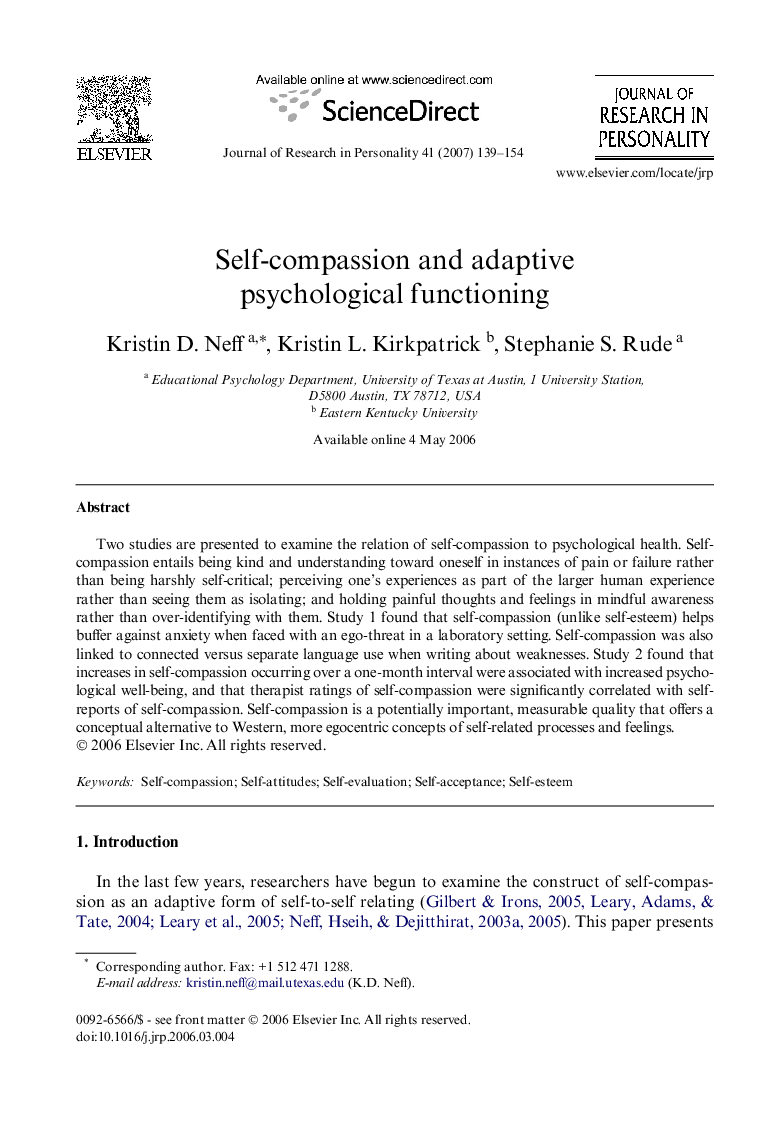| Article ID | Journal | Published Year | Pages | File Type |
|---|---|---|---|---|
| 952180 | Journal of Research in Personality | 2007 | 16 Pages |
Two studies are presented to examine the relation of self-compassion to psychological health. Self-compassion entails being kind and understanding toward oneself in instances of pain or failure rather than being harshly self-critical; perceiving one’s experiences as part of the larger human experience rather than seeing them as isolating; and holding painful thoughts and feelings in mindful awareness rather than over-identifying with them. Study 1 found that self-compassion (unlike self-esteem) helps buffer against anxiety when faced with an ego-threat in a laboratory setting. Self-compassion was also linked to connected versus separate language use when writing about weaknesses. Study 2 found that increases in self-compassion occurring over a one-month interval were associated with increased psychological well-being, and that therapist ratings of self-compassion were significantly correlated with self-reports of self-compassion. Self-compassion is a potentially important, measurable quality that offers a conceptual alternative to Western, more egocentric concepts of self-related processes and feelings.
